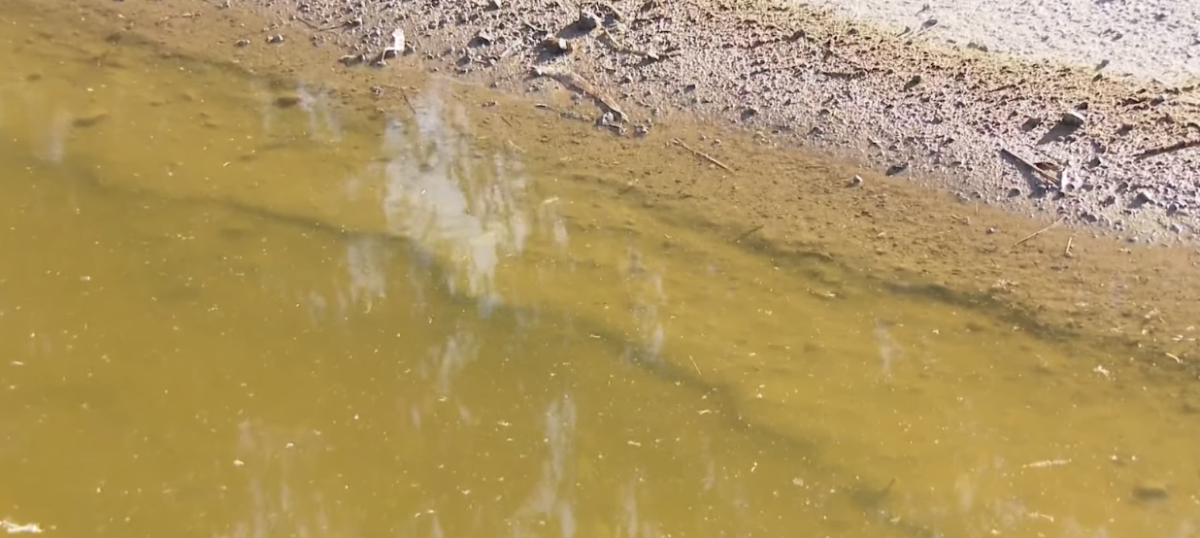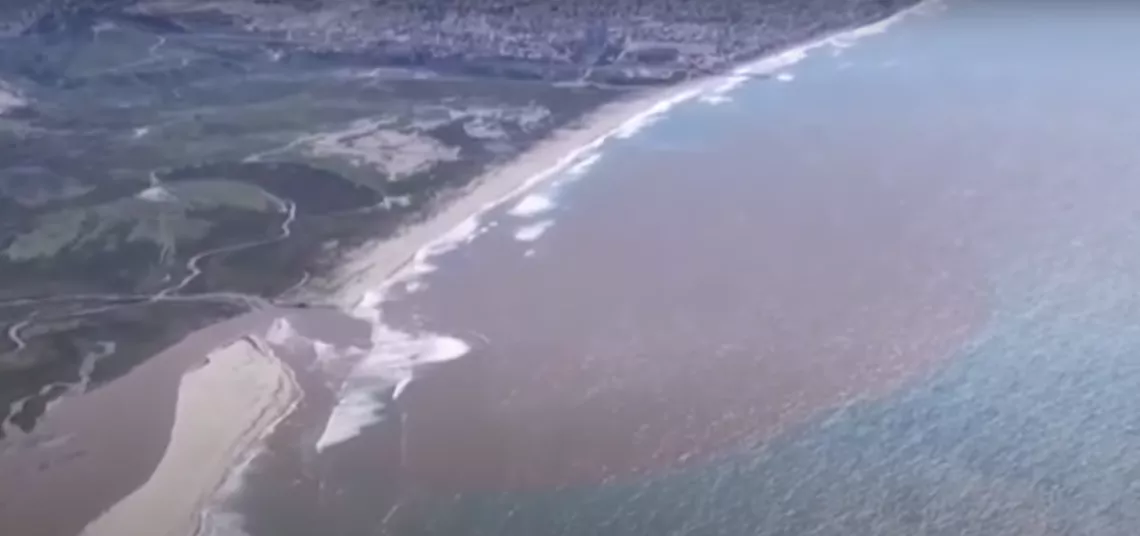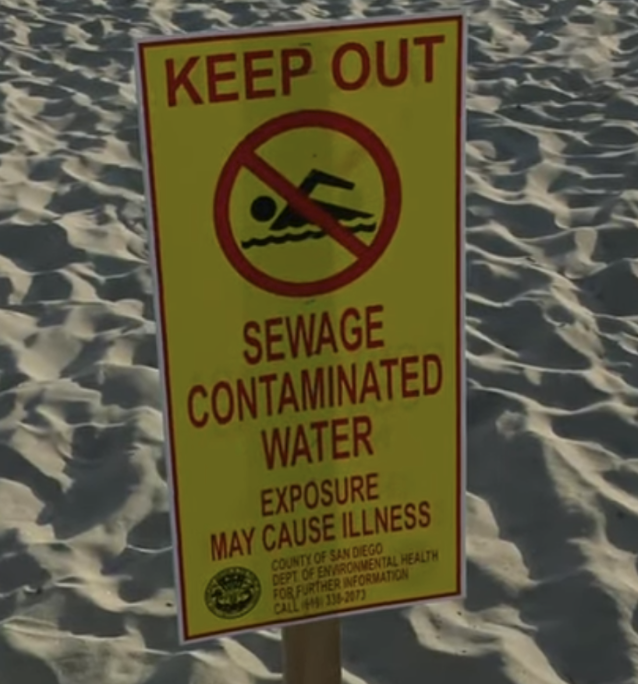 For decades, raw sewage from Tijuana, Mexico has, and continues, to flow across the border into San Diego, California. This discharge flows into the Tijuana River Valley, and ultimately to the Pacific Ocean. This pollution has negatively impacted the Tijuana River Valley and the Tijuana River Estuary, one of the last remaining estuaries in California, and the beaches. Unhealthy concentrations of fecal indicator bacteria has forced the County of San Diego to close 10 miles of beach access from the US-Mexico Border all the way to the beaches of Coronado.
For decades, raw sewage from Tijuana, Mexico has, and continues, to flow across the border into San Diego, California. This discharge flows into the Tijuana River Valley, and ultimately to the Pacific Ocean. This pollution has negatively impacted the Tijuana River Valley and the Tijuana River Estuary, one of the last remaining estuaries in California, and the beaches. Unhealthy concentrations of fecal indicator bacteria has forced the County of San Diego to close 10 miles of beach access from the US-Mexico Border all the way to the beaches of Coronado.
At the urging of Congressman Scott Peters, the San Diego State University School of Public Health issued a white paper which details the public health risks posed by the transborder flow of sewage. In addition to health risks posed to people being in direct contact with contaminated water, they identified contaminants in the air and soil that puts residents at risk. The white paper found that the contaminants in the sewage included harmful viruses, bacteria, parasites, and toxic chemicals. The alarming conclusion the San Diego State University researchers found, is the potential for the community to be exposed to harmful, antibiotic resistant strains of bacteria due to cross-border sewage flows. The white paper states that “The Tijuana River and Estuary (TJRE) is severely contaminated by untreated sewage, industrial waste and urban run-off due to inadequate infrastructure and urbanization, and the watershed is classified as an impaired water body according to the US Clean Water Act.’’
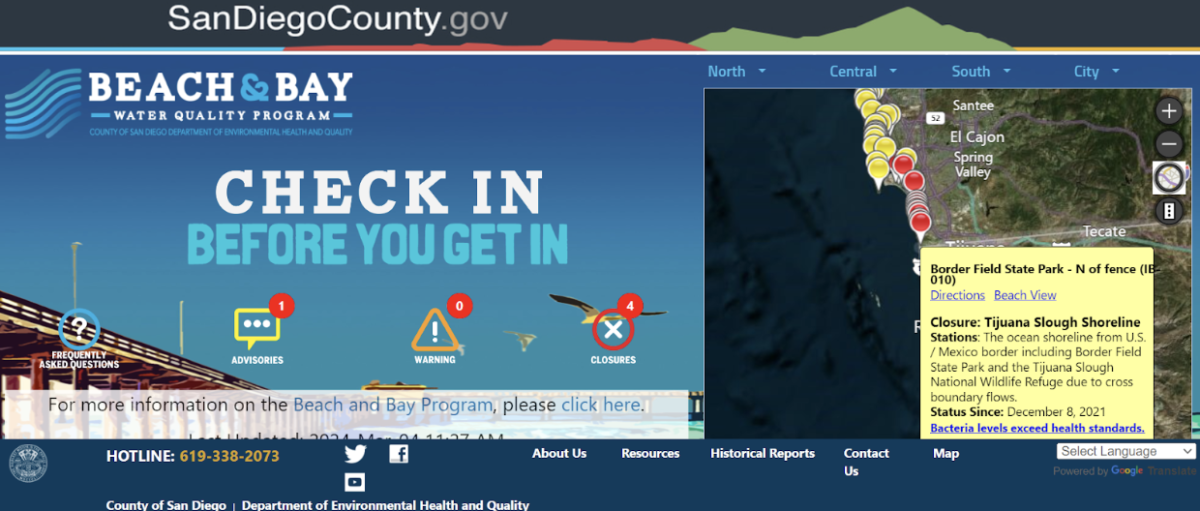
This environmental disaster and public health emergency has been exacerbated by complacency, procrastination and lack of funding. Mexico’s sewage collection and treatment system cannot meet demand and has experienced frequent failures which has resulted in untreated waste entering waterways in Mexico that then flow into the US. Both residents of Mexico and the US have been exposed to this unhealthy situation.
The International Boundary and Water Commission (IBWC) is the lead binational agency responsible for addressing water quality problems in the Tijuana River Watershed. Under the guidance of the IBWC, efforts have been made, both in the US and Mexico to reduce transboundary sewage flows. A key part of this effort is the South Bay International Wastewater Treatment Plant (SBIWTP) which is owned and administered by the IBWC. The purpose of the SBIWTP is to treat sewage flows exceeding the capacity of Tijuana's sewage treatment facility and transboundary flows collected from five canyon collectors. The treated water is discharged to the Pacific Ocean via the South Bay Outfall pipe, which extends 23,600 feet offshore.
I applaud Coronado and Imperial Beach residents, Mayors, San Diego officials and politicians across California for demanding drastic change and help from the US and Mexican government to fix this problem once and for all. Shout out to the group called Stop the Poop for their involvement and activism, demanding a permanent fix to this multi-generational long crisis. Mexican citizens have complained for years about being forced to connect their sewer lines to the storm drains.
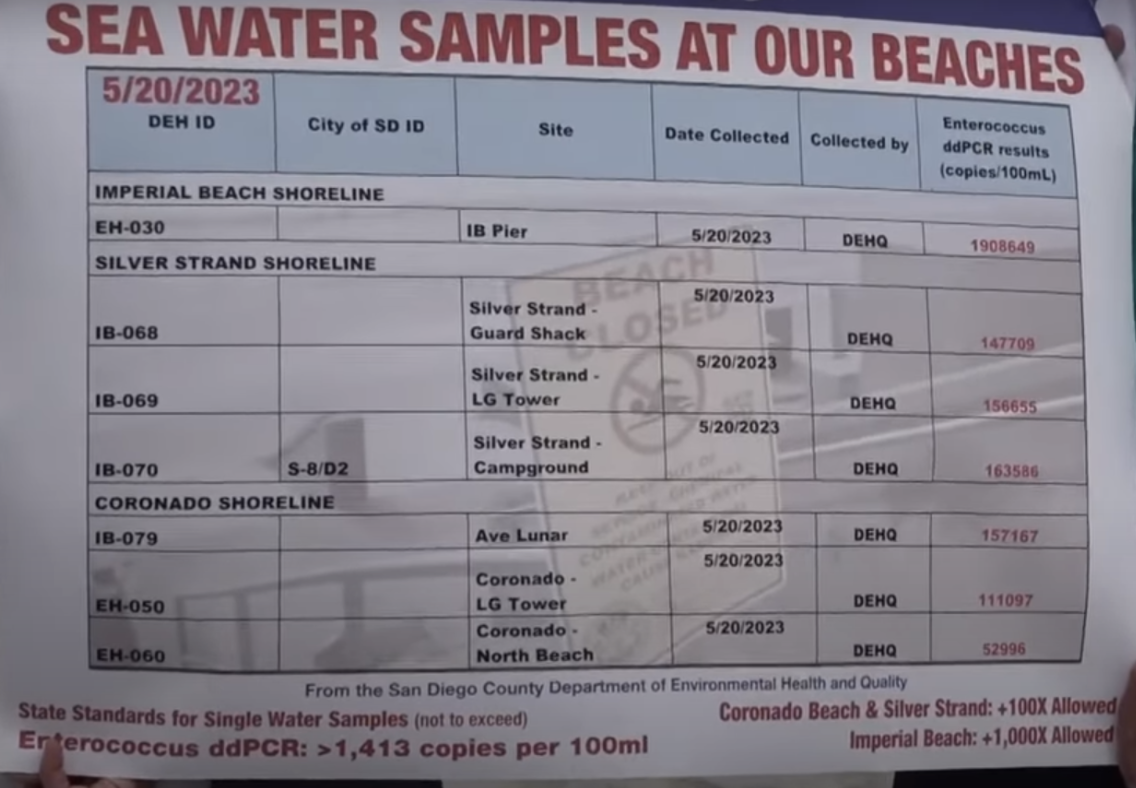
In order to address infrastructure failure, approximately $350 million in federal funding was approved but has proven to be insufficient, as upgrades are needed to handle increased flows from Mexico. President Biden has allocated another $310 million towards infrastructure repair and upgrade, which has stalled in Congress for months. This is an environmental and public health emergency and should be treated as such by members of Congress. If concise action is not taken in a timely manner, we could be looking at our next epidemic of water and airborne diseases right here in the US.
My dream is that the residents of Imperial Beach and the South Bay can enjoy clean, safe beaches, no more illnesses, no more polluted air and zero occurring beach closures due to sewage overflow; Mexican citizens be given proper wastewater infrastructure, and for their tap water to become completely safe to drink, reducing reliance on plastic water bottles and lastly a tertiary, RECYCLED wastewater treatment plant be built, shared by communities from both sides of the border. It should be well-funded and well managed by a large group of caring, dedicated workers and volunteers, committed to making a safe, healthy environment accessible to all. Nationality, race, skin color, income, wealth, gender, and sexual orientation should NEVER determine whether or not a community is worthy of a safe and healthy environment. It’s long overdue that clean air and clean water be viewed by those in power as a RIGHT, instead of a privilege!
Call to Action!
I encourage anyone reading this article to write or call your US Senators and Representatives, urging them to unanimously approve this life-saving funding now!
Sydney M. Pitcher is one of our youngest volunteers under 30, sight impaired and on the autism spectrum. She is an active Sierra Club member in the Stop the Delta Conveyance (tunnel) Campaign and is passionate about water and water conservation.
Barry Pulver, now retired, has over 40 years of experience working as a geologist in San Diego County. Much of his work has been focused on water quality issues. While employed by the California Regional Water Quality Control Board - San Diego Region he worked on protecting and restoring groundwater and surface water quality.
